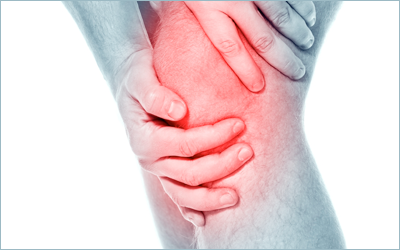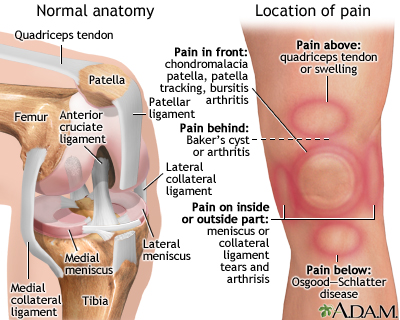
There are many possible causes of pain in the knees. An inflammatory condition called gout occurs when a person has high uric acid levels in their blood. This substance builds up in the joints and can lead to painful inflammation and damage. These attacks typically affect just one joint at a time and can be very debilitating. The symptoms of a gout attack include a burning and aching sensation, warmth, and redness. Other possible causes of pain in the knee include a slipped disc, a strained ligament, or an injury to the synovium, which is the inner lining of the knee.
Another common cause of pain in the knee is an injury to the kneecap. This injury can break a bone fragment that irritates the kneecap and can lead to chondromalacia patellae, which is an inflammation of the kneecap. This condition can be severe and even life-threatening, so it’s important to get a proper diagnosis. If you suspect that you may have an injury to your kneecap, it’s important to seek medical attention.
A new knee pain may be an indication of instability in the kneecap, a dislodged bone fragment, or a weakened ligament. Past injuries that have been forgotten may weaken the tendons and ligaments surrounding the joint. When you develop pain in the kneecap, you need to seek medical attention immediately. If you suspect you’ve sustained an injury to the joint, it’s essential to visit a doctor to rule out other causes.
A doctor may prescribe pain medications or other treatments, including physical therapy. The doctor can prescribe supportive aids to stabilize the knee while the patient recovers. Occupational therapists can also recommend a healthy fitness program. These options can help relieve joint pain. It can also strengthen the muscles surrounding the knee and increase joint stability. Exercise can improve circulation to the joint, which can speed up the healing process. In addition to addressing the root cause of the knee pain, physical therapy is also recommended.
If you suspect that you’re experiencing knee joint pain, a doctor should first rule out other possible causes. The pain may come from a strained or injured tendon or ligament. There is no evidence that a recent injury caused the pain. However, it’s still possible to treat the pain with over-the-counter pain medication and physical therapy. Other causes of knee pain include dislocation of the knee or an uninjured ligament.

The main cause of knee pain is often cartilage strain. This condition can be caused by several factors, including a previously untreated knee fracture. Some people are more susceptible to arthritis than others and may have a family history of the condition. For example, children are more likely to suffer from osteoarthritis than adults, and older people may have trouble walking or even running. This type of joint pain is often associated with a previous injury or damage to the tendons.
Some common causes of knee pain include damage to the tendons and ligaments that attach the tibia to the femur. Some of these conditions are caused by a specific physical problem, such as an injury or unintentional twisting that stretches the tendons. Other causes of knee pain can be traumatic events. For example, a person may experience severe pain when trying to climb or use stairs, which may be the result of a torn ligament.
A direct blow to the knee can break the bone. Broken bones can be very painful, but they also have many other causes, such as lack of muscle strength or flexibility. If you have a broken knee, the pain will interfere with your ability to carry weight. NSAIDs are generally effective for short-term pain but do not work as a long-term treatment. If you suffer from long-term joint pain, you may need to consult a doctor and plan treatment with help Collagen Complex.
Other common causes of knee pain include bursitis, which affects both athletes and non-athletes. Bursitis is an inflamed bump in the knee that can lead to painful symptoms. The meniscus is a shock absorber, so a person can suffer a tear in this area. Sprains can also cause inflammation and swelling of the ligaments in the knee. They can even cause a person to be unable to walk, which can affect his or her mobility.